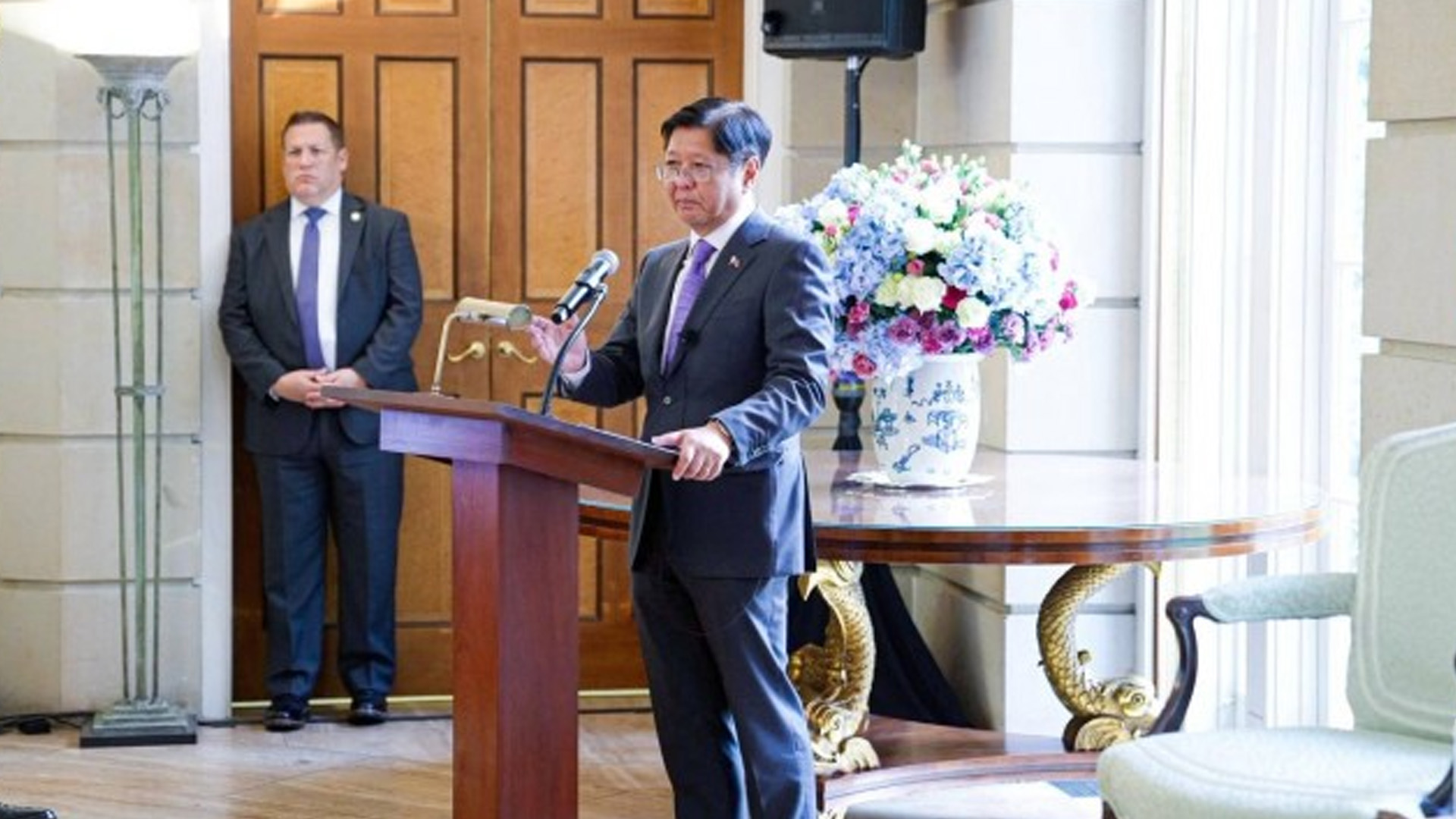President Ferdinand R. Marcos Jr. on Wednesday (Thursday Manila time) said the Philippines must pursue economic “transformation”, rather than just mere economic recovery, in order for the country to thrive in a post-pandemic world.
In his remarks during the fireside chat with US businesses at the Blair House in Washington, President Marcos said he does not want the Philippines to be back where it was in mid-2019 right before the Covid-19 hit.
He said the country must “transform” to keep the economy moving and growing after the height of the Covid-19 pandemic.
“I do not view it as they said how do we get out of this hole? The hole that the pandemic put us in? I said: ‘Well I see it in a different way.’ I think because – that’s why I do not use ‘recovery’, the word recovery, I use the word transformation. Because we are not trying to recover to where we used to be. We are trying to transform ourselves to be part of the modern world,” he said.
“Now, that transformation I think will occur, I think it is a grand opportunity that we have been given. Now we do not start from a blank sheet of paper but it’s close… And many, many new sectors that did not exist before. There are businesses that did not exist before that will be very dominant in the very near future,” he added.
The economic transformation, he said, could be achieved with the help of the young workforce with an average age of between 23 and 24.
He further described the young workforce as well trained and proficient in the English language, noting that they are “perfectly capable of engaging in these activities around the world.”
“Well, the optimism, number one, comes from our workforce. I have a 107 million population and 60 percent of that are working. And those – we have the youngest, we have the youngest I don’t know in the world but certainly in Asia,” he said.
He expressed optimism that pursuing economic transformation is the “right approach”, especially now that the effects can be perceived as the government structures the Philippine economy for stronger investment and more well-structured value chains both in the service sector and in the manufacturing sector.
Bringing more foreign investments in
Marcos also touted the administration’s efforts minimize red tape and digitalize the bureaucratic processes to help accelerate foreign direct investment (FDI) and bring businesses into the Philippines.
He pointed out that the Anti-Red Tape Authority (ARTA) has succeeded in streamlining some of the permitting process to ensure ease of doing business in the country.
“They have done a very good job. They have reduced some of the permitting procedures from — for different industries from several months to just a few days,” Marcos said told the business executives
He, however, said the challenge is how to compete with other countries and how to shorten the business permitting process, which sometimes takes 36 months to secure in the Philippines.
For comparison, documents are ready for signature after 24 hours in other countries, he noted.
The President said another area that the administration is working on is digitalizing government processes and transactions.
“We always — that’s why digitalization has become such an important part of our effort because with digitalization, you remove as much of the discretion that we will have — that people have in actually processing these applications or these documents and hopefully the end result is that — we will be doing most of our business in government purely online, without speaking to a human being,” he said.
Citing a study, Marcos said 95 percent of today’s work is done online, adding that although digitalizing the bureaucracy may be an intimidating task the government must carry it out. (PNA)







